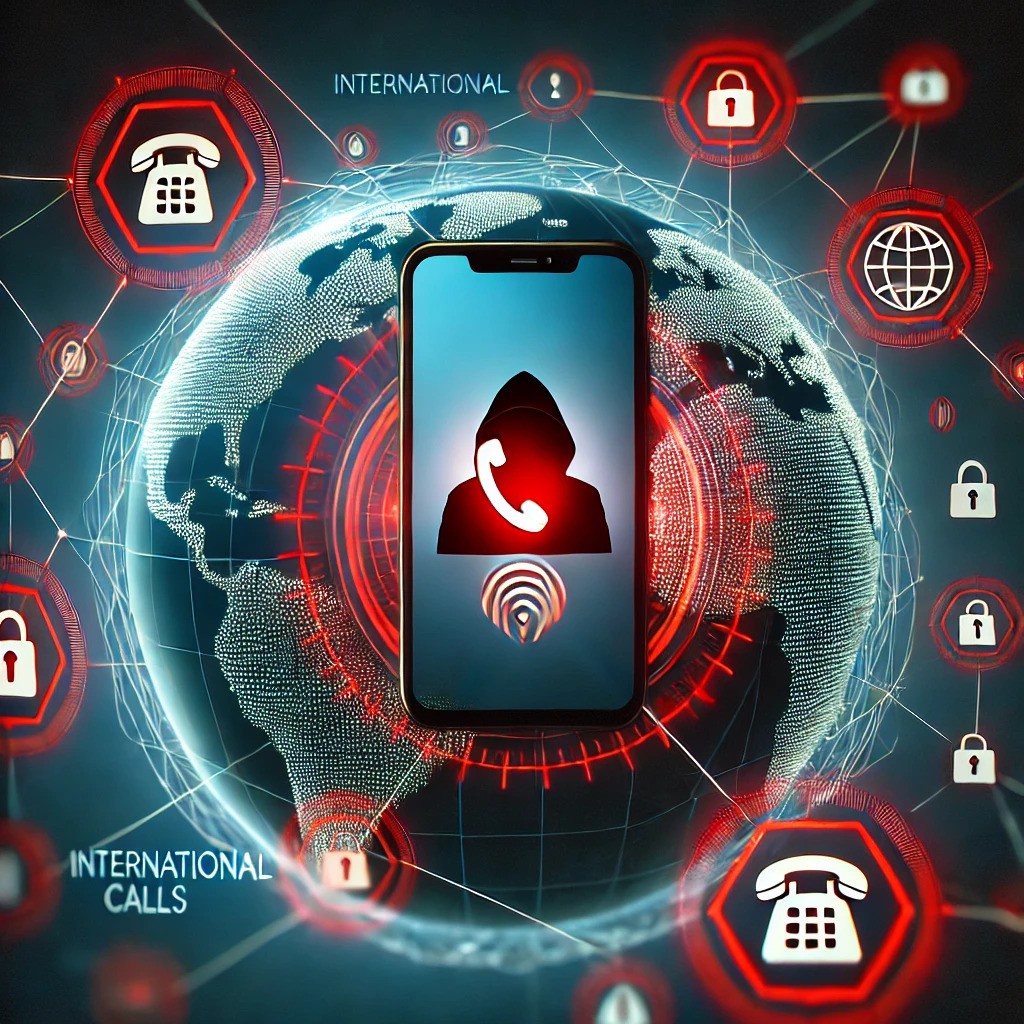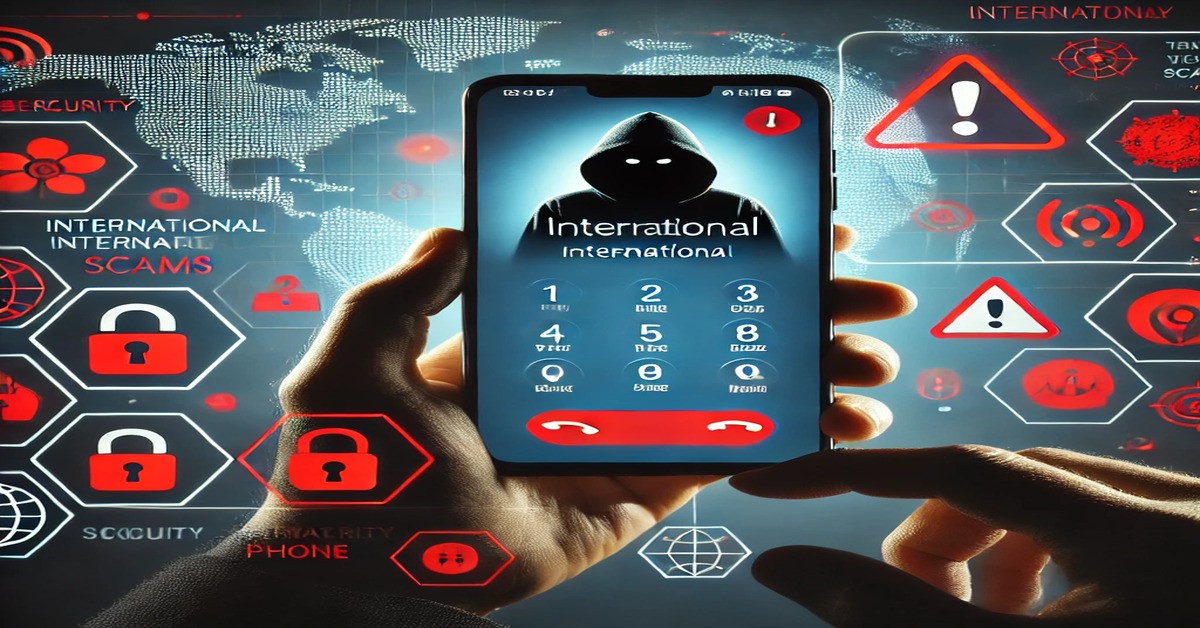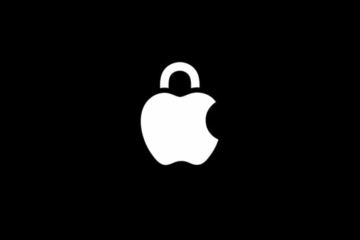International Phone Scam Alert: How to Protect Yourself from Dangerous Foreign Calls
In recent months, countless individuals worldwide have reported an alarming surge in suspicious calls from international numbers. These aren’t just simple nuisance calls – they represent a sophisticated global scam operation that could potentially drain your bank account or compromise your digital identity. Our comprehensive guide will help you understand these threats and protect yourself effectively.
Understanding the Scope of International Phone Scams
International phone scams have evolved significantly in recent years, becoming increasingly sophisticated and harder to detect. While your phone displays numbers from the United States, Iran, Oman, or other countries, many of these calls actually originate much closer to home. Scammers are exploiting modern telecommunications technology, including easily accessible international SIM cards and eSIM services, to create an illusion of legitimacy.
How These Scams Typically Work
Scammers employ various tactics to target potential victims:
The Missed Call Technique
Perhaps the most insidious approach is the “missed call” strategy. Scammers count on human curiosity, knowing that many people will instinctively return a missed call from an international number. This simple action could cost you significant money in international calling charges or, worse, connect you with skilled fraudsters.
The Urgent Message Ploy
Some scammers take a more direct approach, repeatedly calling while claiming to represent:
- International courier services with an “urgent” package
- Global recruitment agencies offering lucrative opportunities
- Government agencies or financial institutions
- Contest organizations announcing prize winnings
Red Flags to Watch For
Country Codes That Should Raise Concern
Pay special attention to calls beginning with these country codes:
- +92 (Pakistan)
- +84 (Vietnam)
- +62 (Indonesia)
- +1 (United States)
- +98 (Iran)
Any number not beginning with +91 (India) warrants extra scrutiny. Remember that answering these calls could result in expensive per-minute charges.
Essential Protection Strategies
Immediate Actions You Can Take
- Install Call Screening Apps Truecaller and similar applications provide a crucial first line of defense, helping identify and block known scam numbers before they reach you.
- Enable Built-in Protection Features Most modern smartphones and communication apps offer robust security features:
- Enable “Silence Unknown Callers” on your iPhone
- Activate “Spam Protection” on Android devices
- Use WhatsApp’s “Silence Unknown Calls” feature
- Follow Best Practices
- Never return calls to unknown international numbers
- Block and report suspicious numbers immediately
- Enable DND (Do Not Disturb) services on your phone line
- Regularly check your phone bill for unauthorized charges
What to Do If Your Number Is Compromised
If you’re receiving an unusual volume of international calls, your phone number may have been exposed in a data breach. In this case:
- Enable DND services immediately
- Consider changing your number if the situation becomes unmanageable
- Monitor your accounts for suspicious activity
- Report the issue to your local cyber crime cell
Understanding Modern Scammer Tactics
Today’s phone scammers are technologically sophisticated, often using:
- Voice cloning technology
- Social engineering techniques
- Artificial Intelligence to make calls more convincing
- Data from previous breaches to make their stories more credible
Protecting Your Digital Identity
Remember that phone scams often serve as a gateway to larger identity theft operations. Protect yourself by:
- Never sharing personal information over phone calls
- Avoiding clicking on any links sent via SMS after suspicious calls
- Keeping your social media profiles private
- Regularly updating your passwords and security settings
When to Contact Authorities
If you’ve been targeted by international scammers, consider reporting to:
- Your local police cyber crime unit
- National cyber crime reporting portals
- Your bank’s fraud department (if financial information was compromised)
- Telecommunications regulatory authorities

Frequently Asked Questions About International Phone Scams
How can I tell if an international call is a scam?
Warning signs include:
- Unexpected calls from international numbers
- Callers claiming to be from government agencies or banks
- Pressure to act quickly or make immediate decisions
- Requests for personal information or financial details
- One-ring calls that disconnect quickly
- Calls at unusual hours due to supposed “time zone differences”
- Pre-recorded messages in foreign languages
What should I do if I accidentally answered a scam call?
If you’ve already answered a suspicious international call:
- End the call immediately
- Don’t share any personal information
- Block the number
- Monitor your phone bill for unexpected charges
- Report the number to your local authorities
- Watch your bank accounts for unauthorized activity
- Enable additional security measures on your phone
Can scammers hack my phone just by calling me?
No, scammers cannot hack your phone simply by calling you. However, they can:
- Collect information about your active phone line
- Record your voice for potential fraud
- Trick you into downloading malicious apps
- Convince you to grant them remote access
- Use social engineering to gather personal information
Why do I keep getting calls from different international numbers?
Multiple international calls usually occur because:
- Your number was part of a data breach
- You’re on a shared scammer call list
- Your number was randomly generated
- You recently made international transactions
- Your contact information is publicly available online
How much can international scam calls cost me?
The costs can vary significantly:
- Premium rate numbers can charge $5-20 per minute
- Return calls to international numbers may incur significant charges
- Some scams lead to unauthorized subscription services
- Financial scams can result in thousands in stolen funds
- Identity theft resulting from scams can have long-term financial impact
Is it safe to text back an international number?
No, it’s not recommended to text back unknown international numbers because:
- SMS responses may trigger premium rate charges
- Scammers confirm your number is active
- Links sent in response could be malicious
- Personal information in texts can be harvested
- Some texts may subscribe you to paid services
How do I stop international scam calls permanently?
While no solution is 100% effective, you can:
- Register for your country’s Do Not Call registry
- Enable built-in phone spam filters
- Use call-blocking apps
- Contact your carrier about international call blocking
- Change your number if severely targeted
- Keep your number private and off public listings
- Enable “Silence Unknown Callers” features
What information should I never share on an international call?
Never provide:
- Banking information or credit card details
- Social Security/National ID numbers
- Online account passwords or OTPs
- Home address or personal details
- Birth date and other identifying information
- Computer or phone access credentials
- Investment or cryptocurrency wallet information
Are there any legitimate international calls I should answer?
Legitimate international calls might come from:
- Family members or friends living abroad
- International businesses you work with
- Hotels or services you’ve booked overseas
- International shipping companies (with prior notice)
- Global banks you have accounts with Always verify the caller through official channels if unsure.
What’s the latest technology scammers use in international calls?
Recent scam technologies include:
- AI voice cloning to impersonate known contacts
- Caller ID spoofing to show local numbers
- Virtual phone systems for mass calling
- Recording devices for voice phishing
- Automated dialers with pre-recorded messages
- Deep fake technology for video calls
How do I report international phone scams?
Report scams to:
- Your national consumer protection agency
- Local police cyber crime unit
- Phone carrier’s fraud department
- Federal Trade Commission (in the US)
- Internet Crime Complaint Center (IC3)
- National fraud reporting centers
- Phone app reporting systems (like Truecaller)
What happens if I fall for a phone scam?
If you’ve been scammed:
- Contact your bank immediately to freeze accounts
- Change all online passwords
- Report unauthorized charges
- File a police report
- Contact credit bureaus for fraud alerts
- Document all communication with the scammer
- Seek identity theft protection services
These FAQs have been curated based on common user concerns and current scam trends. Remember that scammer tactics evolve constantly, so staying informed about new schemes is crucial for protection.
Conclusion
While not every international call is fraudulent, the current landscape requires heightened vigilance. By staying informed and following these security measures, you can significantly reduce your risk of falling victim to these sophisticated scams. Remember: when it comes to unexpected international calls, it’s always better to err on the side of caution. Your financial security and digital identity are worth protecting.
Stay safe, stay alert, and share this information with your friends and family to help them protect themselves from international phone scams.




